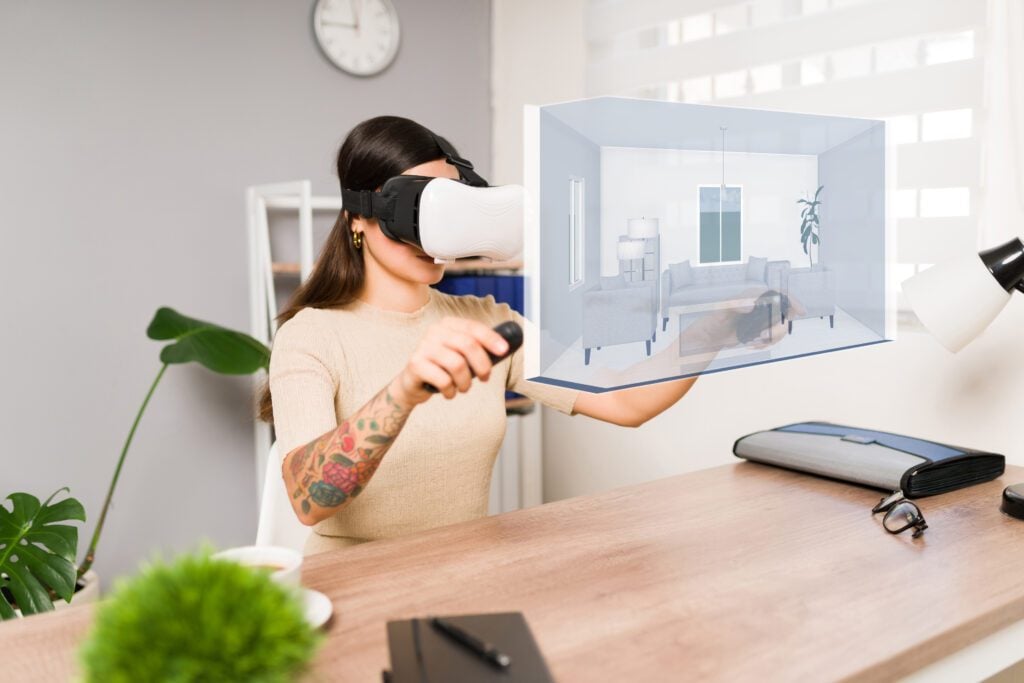Virtual reality is often the subject of lots of science-fiction speculation. Today, VR is often in entertainment news thanks to commercially available products, but these are often seen as little more than expensive toys.
Yet more and more evidence is pointing towards how VR may intersect with the real estate industry, and not in decades or years, either. The truth is that the future of real estate may end up being aligned with VR technology sooner – and more closely – than you think.

Multimedia has always played a strong role in the real estate industry. The most effective MLS listings are always bristling with pictures of homes for sale, as the more images of a home, the more attention that listing attracts. 3D virtual tour providers like Matterport take that one step further, letting house hunters get an even better look at the inside of a home thanks to their panoramic image stitching technology, something that has surely been influential on the company’s success.
But these approaches are still limited to just what the camera captures. Remote technologies still don’t have the ability to give house hunters the feeling that they’re standing in a home they’re thinking of purchasing in an immersive manner – and this is precisely the problem that the virtual reality technology sector is poised to solve.
VR tech gives anyone wearing a pair of virtual reality goggles the feeling that they have actually been transported to a new location. As the wearer moves their head, their view changes just as they would if they were in a real location and not a virtual one. Moving through this virtual space also changes the wearer’s perspective as it would in real life, and people exploring VR environments can look up, down, and all around in ways that you would in a live setting.
This is, of course, why VR technology would shine in a real estate setting. In fact, the groundwork is being laid right now. VR companies such as Miami-based startup Yupix have allied with a local property developer to allow those interested in purchasing yet-to-be-constructed condominiums to explore virtual-reality versions of these units, resulting in giving house hunters an experience that’s as close to walking through an already-finished condo as possible. That’s not something that even the most robust Matterport virtual tour can provide – yet.
Virtual reality is the future, and it’s going to be a ubiquitous part of many distinct aspects of our personal and professional lives very soon. This includes innovative approaches to showing homes such as the example given above. As technology becomes cheaper and more widespread with every new generation of development before long we’ll all be strapping VR goggles on for both business and pleasure.